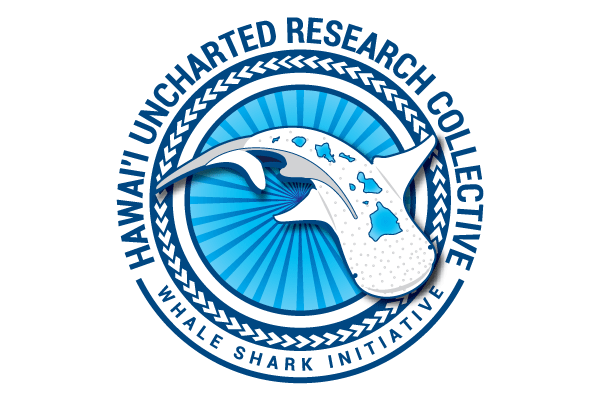

"We are creatures of the Earth, and everything we learn about the Earth teaches us about ourselves."
-David Suzuki
Below you'll find an array of conservation organizations, each one unique in their art of preserving ecosystems and wildlife. Sites are full of information, show the latest in efforts/research and spark passion in those of us who love the wild areas of our fast-changing world and the animals that inhabit it.
Grizzly Bear Foundation
The Grizzly Bear Foundation is dedicated to the long-term welfare of the grizzly bear in North America. It is the only Canadian charitable organization dedicated solely to the welfare of grizzly bears. They work collaboratively to support conservation and preservation of grizzly bears through research and public education.

Salmon State
Alaska’s salmon, which provide culture, food, income, employment, and recreation to Alaskans and beyond, face the same threats that eradicated salmon runs outside Alaska. They are too important to gamble. We defend salmon habitat and promote fish first policies. We want to ensure that Alaska remains the Salmon State: the home of the largest, healthiest, and most abundant wild salmon runs left on Earth.
We are housed at the New Venture Fund and collaborate with Alaskan nonprofits, indigenous governments, and other organizations. Each campaign is a unique mix of tribes, grassroots organizations, and stakeholders united to work toward our shared goal of ensuring we all have access to sustainable wild salmon in the future — whether that’s in our nets, backyard streams, or on the dinner table.
Friends of McNeil River
Friends of McNeil River is a diverse bunch – doctors, dentists, lawyers, writers, photographers, biologists, guides, teachers, pilots, and just plain outdoor enthusiasts. They all have something in common: they are concerned about the welfare of Alaska’s world-famous McNeil River State Game Sanctuary and its magnificent Brown Bears.
The McNeil River State Game Sanctuary was established in 1967 by the State of Alaska to preserve the unique concentration of bears that seasonally gather at McNeil Falls. All other uses are secondary, including bear viewing. In short, it is a place where bears can be bears with no fear of human interference. The program works by tightly regulating human behavior in the Sanctuary in terms of numbers and uses. Minimizing the human presence and infrastructure gives the bears the space they need. The State of Alaska does operate a small, unobtrusive viewing program so lucky visitors can view and photograph bears as they go about their daily lives.
International Association for Bear Research and Management
The International Association for Bear Research and Management (IBA) is a non-profit tax-exempt organization open to professional biologists, wildlife managers and others dedicated to the conservation of all bear species. It supports the scientific management of bears through research and distribution of information.
The eight bear species of the world pose significant research and management problems. Continued viability of populations and the possible restoration of bears in certain areas, will be largely contingent upon a cooperative approach towards research, management, land use, and education, and will increase in cost as land values escalate. The IBA, an association primarily of professional biologists with an interest in bears, recognizes these difficult bear research and management problems faced by agencies and governments.

Salmon Beyond Borders
Salmon Beyond Borders is a campaign driven by sport and commercial fishermen, community leaders, tourism and recreation business owners and concerned citizens, in collaboration with Tribes and First Nations, united across the Alaska/British Columbia border to defend and sustain our transboundary rivers, jobs and way of life.
Get Bear Smart Society
We have helped create a paradigm shift in people’s attitudes toward bears and other wildlife by replacing fear and misunderstanding with respect and understanding.
The Get Bear Smart Society’s goal is to minimize the number of bears killed as a result of human-caused problems. We accomplish this by helping the public prevent conflict at their homes, work and play; championing policymakers to create Bear Smart communities; and encouraging police and bear managers to choose non-lethal bear management practices.
Raincoast Conservation Foundation
Raincoast is a team of conservationists and scientists empowered by our research to protect the lands, waters and wildlife of coastal British Columbia. We use rigorous, peer-reviewed science and community engagement to further our conservation objectives. We call this approach ‘informed advocacy’. As a charitable, non-profit conservation science organization that operates a research lab, research field station and a research/sailing vessel, we are unique in Canada.
Since 1990, we have been making progress toward our habitat and wildlife protection goals. Our on-the-ground presence has given us a deep-rooted understanding of BC’s vast coastline. We work in partnership with scientists, First Nations, local communities and NGOs to build support for decisions that protect marine and rainforest habitat on BC’s coast.
The Vital Ground Foundation
The Vital Ground Foundation is a Montana-based land trust that conserves and connects habitat for grizzly bears and other wildlife. We also team up with communities to prevent conflicts between bears and people.
Our mission is to protect and restore North America’s grizzly bear populations for future generations by conserving wildlife habitat and by supporting programs that reduce conflicts between bears and humans.
Watershed Watch Salmon Society
Watershed Watch Salmon Society’s mission is to catalyze efforts to protect and restore BC’s precious wild salmon. Through scientific expertise, strategic alliances, outreach programs, and innovative projects, Watershed Watch is at the forefront in sounding the alarm on threats to salmon, and in prompting action to help them.
Our many years of experience uniquely position us to identify and act on existing and emerging threats to wild salmon. We have been instrumental in drawing public attention to such key issues as: the threat posed by sea lice; water management; unsustainable harvesting; the long-term benefits of saving wild salmon; the impact of hydropower projects; First Nations’ monitoring of salmon and salmon habitat; and the potential impacts of groundwater withdrawal on wild salmon.
Valhalla Wilderness Society
Valhalla Provincial Park was created in 1983 after eight years of hard-won battle by the Valhalla Wilderness Society. VWS went on to successfully spearhead campaigns for the Khutzeymateen Grizzly Bear Sanctuary, Goat Range Provincial Park, and the Spirit Bear Conservancies on Princess Royal Island.
The charitable organization also played one of the key roles in the protection of South Moresby National Park Reserve. Its Endangered Wilderness Map of 1988 initiated the movement to double BC’s park system to 12% of the province. VWS has led park campaigns that now protect over 560,000 hectares.
David Suzuki Foundation
One nature.
We are nature. All people, and all species.
We are interconnected with nature, and with each other. What we do to the planet and its living creatures, we do to ourselves. This is the fundamental truth guiding our work at the David Suzuki Foundation. Through evidence-based research, education and policy analysis, we work to conserve and protect the natural environment, and help create a sustainable Canada. We regularly collaborate with non-profit and community organizations, all levels of government, businesses and individuals.
Hawai'i Uncharted Research Collective
Hawai‘i Uncharted Research Collective's mission is to conduct scientific research on Whale Sharks (Rhincodon typus) and other marine organisms in Hawaiian waters. Their research focuses on population dynamics, ecology, animal behavior and human impacts. Findings from this research will be used to support local and global efforts to conserve Whale Sharks and their environment.
Their vision is to merge community engagement and scientific research. HURC's aim is to pair citizen science and education with scientific research and technology to learn more about this relatively unknown species in Hawaiian waters. This research will increase awareness and knowledge about Whale Sharks to implement strong conservation-minded initiatives in Hawai'i and globally.









